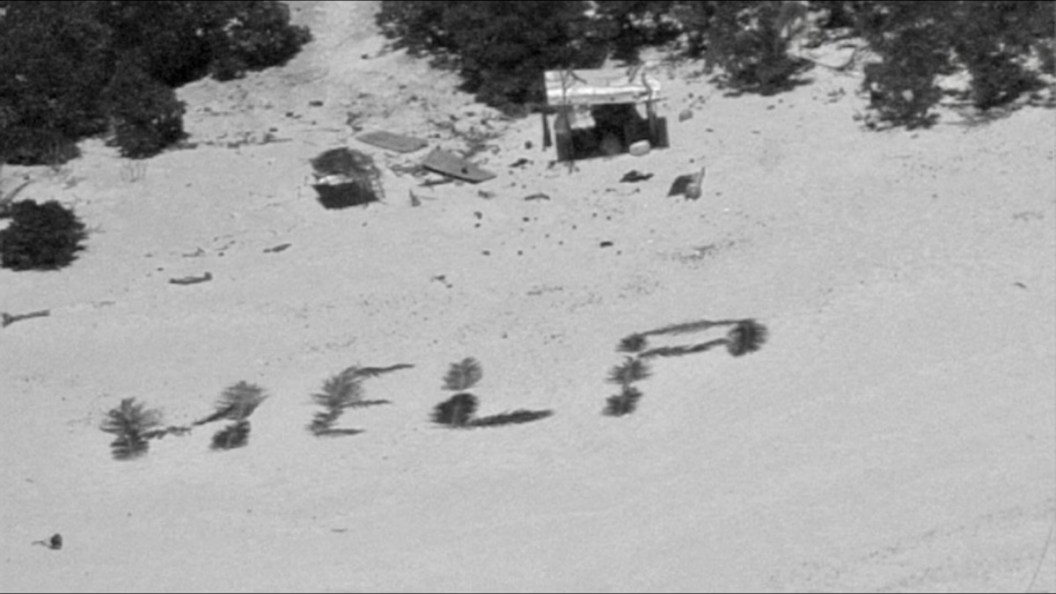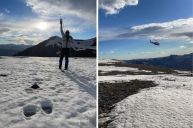The U.S. Coast Guard rescued three mariners who had been stranded on a remote Pacific island for more than a week after a search crew spotted the word "HELP" written out on the beach in palm leaves.
According to Tuesday's announcement, the three men, only described as in their 40s, set out on a voyage from Polowat Atoll, ??Micronesia, on Easter Sunday in a 20-foot open skiff. Although the men were experienced navigators, officials say their vessel's outboard motor was damaged as they sailed about 100 nautical miles out to the island of Pikelot.
Officials explained what initiated the search was a relative of the three men contacted authorities on April 6, saying they had not returned. Authorities immediately coordinated a search mission that involved multiple agencies and countries. Then, on April 7, a U.S. naval aircraft located the men by spotting the word "HELP" spelled out in the sand.
Lt. Chelsea Garcia, the search and rescue mission coordinator on the day the men were located, called the message "a remarkable testament to their will to be found" and "a crucial factor in their discovery." She added: "This act of ingenuity was pivotal in guiding rescue efforts directly to their location."
On April 8, the crew dropped a radio to establish communication with the mariners, who confirmed that they were in good health and had access to food and water, and needed assistance. In turn, the crew dropped survival packages to hold the mariners over until further assistance could arrive. Then, rescue crews arrived the next day.
In a statement, the U.S. Coast Guard advised that all mariners equip their vessels with an Emergency Position Indicating Radio Beacon (EPIRB), which is designed to alert rescue authorities and indicate your location.




